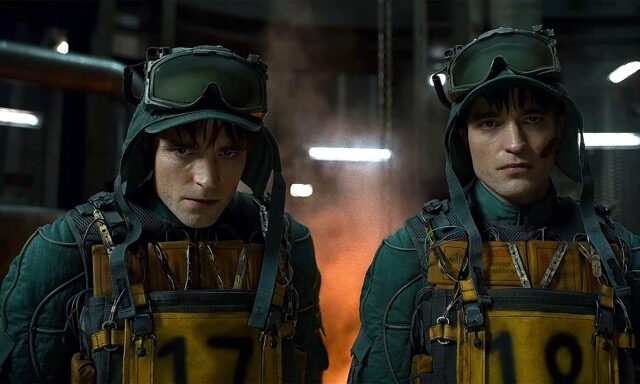Warner Bros chose to move the release of Mickey 17 back by one year, leading to speculation among fans of cinema. This film is a science fiction satire, written and directed by the renowned Bong Joon-ho, and stars Robert Pattinson in a dual role. Following the success of his 2020 best picture Oscar winner, Parasite, Bong is set to release another movie that has generated immense excitement. However, this delay raised questions about whether Bong’s high standards had slipped, but it turns out that Mickey 17 is a fun addition to the genre, despite not reaching the high bar set by its predecessor.
Timeliness and Political Parody
However, this is a perfect time for such themes. The film’s exploration of genetic “purity” and a direct parody of Donald Trump—portrayed by Mark Ruffalo as space colonizer Kenneth Marshall—feels quite relevant to the current social and political situation in the world. Even if this was not intentional, given Hollywood’s traditional caution toward political commentary, it makes for a fascinating movie.
A Return to Brute Force Filmmaking
Adapted from Edward Ashton’s 2022 novel Mickey7, the film reflects Bong’s crude storytelling style, leaning more toward Okja than the cerebral narratives found in Parasite. The plot revolves around a vain, populist leader intent on producing compelling television while his supporters don red hats emblazoned with slogans, resembling a personality cult. Although the approach may seem raw, it is undeniably effective. One of the most galvanizing scenes in recent cinema features Naomi Ackie delivering an uncensored tirade against power.
A Colony Project with Dark Undertones
The story is set in 2054 and involves a project aimed at creating new human colonies on distant planets. Kenneth Marshall’s ambition is to establish a “pure white planet” inhabited by “superior” beings, revealing a racist and fascist agenda supported by a shady religious organization. Central to this narrative is Mickey (Pattinson), described as an “Expendable,” who exists as part of a class of humans meant to be used and discarded. Each time Mickey dies, he’s reprinted to perform tasks deemed too dangerous for the other crew members, enduring cosmic radiation tests and serving as a living test tube for vaccine production.
The Struggle for Identity
Things take a turn when the assumed death of Mickey 17 leads to the creation of a new version, Mickey 18. Remarkably, Mickey 17 survives with the help of a native species in Niflheim that resembles a giant woodlouse/guinea pig. The two characters grapple with their identical appearances, and Pattinson’s performance cleverly illustrates this: Mickey 17 is a scared, kicked-puppy-like figure, while Mickey 18 is hard and angry. Complicating matters is their love rivalry with Nasha (Ackie). Unlike Duncan Jones’s Moon, this film trades the original’s melancholy for violence, high-tech pharmaceuticals, sex, and dark humor.
Mixed Successes in Writing and Execution
For the most part, the film is both funny and exciting. However, some subplots, such as Ylfa’s (Toni Collette) pursuit of the ideal sauce, feel contrived and lack the necessary development to resonate within the broader context of the story. Nonetheless, the production design is notable, with the colony project recruitment office evoking scenes from Fritz Lang’s Metropolis, while the ice caves of Niflheim sparkle like crystalline sapphire. Additionally, Bong’s directing skills shine as he navigates the non-linear structure with ease, making the film’s two-and-a-quarter-hour runtime feel effortlessly engaging.
Conclusion
In conclusion, while Mickey 17 may not match the brilliance of some of Bong Joon-ho’s other works, it remains a fun and sharp satire. Although not as subtle as it could have been, it is still powerful due to its striking imagery, strong performances, and relevant themes. This film successfully balances comedy with social commentary, making it a must-watch in the sci-fi genre.
